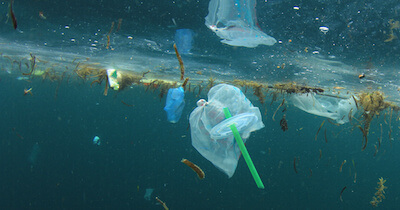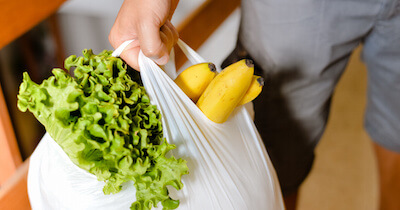By Heather Adams | Rewire
Heather Kerstetter, 29, doesn’t drive, she doesn’t use plastic bags at grocery stores and she uses reusable water bottles but she can’t give up plastic straws. Her resistance comes down to sustainability — her own.
Kerstetter, a disability advocate and Master’s of Social Work Candidate at Temple University, said she needs to use plastic straws to be able to drink, adding that other straw options are not as reliable or don’t work for her situation.
“Saving the environment is important. Not harming marine life is a big deal,” Kerstetter said. “But isn’t it even more important to help our fellow human beings?”
Turning the tide
Many on social media are campaigning to end the widespread use of plastic straws after a video went viral in 2015 showing a sea turtle with a straw stuck up its nose. Companies such as Starbucks, Royal Caribbean and American Airlines are vowing to eliminate their single-use plastic straws. Even cities, like Seattle, have passed legislation that prohibits vendors from providing customers with plastic utensils or straws.

But many with disabilities have spoken out against the overall bans of plastic straws, explaining the straws are essential to their daily lives.
“The blanket policies are scary because it just removes the more accessible straw option.” Kathryn Carroll, Policy Analyst at Center for Disability Rights, said.
Kerstetter attempted to talk to Starbucks on Twitter. The company initially responded saying they are looking to make an inclusive option, but when she pushed them on including voices from the disability community when making these decisions, they didn’t respond. That left her feeling uneasy.
Many of the responses on social media, though, have been worse.
“Friends of mine have been told that they should ‘just die’ if they’re going to be so picky over what straws they can use,” Kerstetter said. “It’s sad, but it’s the typical narrative.”
Helping or hurting?
In these conversations surrounding the plastic straw bans, some people with disabilities are feeling pitted against those fighting for the environment, despite being environmentally conscious in their everyday lives.
Like Kerstetter, Daniel Gilbert, 25, in Owensboro, Kentucky, recycles and conserves energy. He is also a big proponent of proper electronic disposal.
In 2012, the U.S. generated 3.4 million tons of e-waste. Only about 29 percent was recycled, leaving more than 70 percent to be left in landfills or incinerators. Without the proper electronic disposal, e-waste can cause air, water and soil pollution.
This, he said, is just one example of fighting for the environment without hurting people with disabilities along the way.
“I think we could do a lot to help the environment that doesn’t take away vital resources,” Gilbert said.
Others have added options such as using reusable bags and silverware; buying in bulk to reduce packaging, not buying balloons and using more organic garden and home products.
Plus, Gilbert added, plastic straws only account for a small fraction of ocean waste. And he’s right.
According to Bloomberg, of the 8 million metric tons of plastics estimated to enter the ocean each year, straws only account for about .03 percent of it.
Despite these numbers, some activists hope straws can be a “gateway plastic,” leading people to make other, bigger changes in their lives — but at what cost?
The bigger picture
Fiona Robertson, 37, scientist and disability advocate in Aberdeen, Scotland, has had some success working with the Scottish Government. She knows the biggest changes come from corporations and governments, not individuals.

“The problems of plastic waste in the oceans are overwhelmingly systemic,” Robertson said. “The best thing people can do is to use the energy currently being used to ban straws to get companies and governments to deal with the actual threats.”
She said in addition to putting pressure on organizations, people could of course continue to address their own use of plastics and cut down in ways that they are able. But it’s important, she said, to listen to people with disabilities and not force them to give up something they require.
“They think that getting rid of straws is OK because they don’t personally need them,” Robertson said, “instead of listening to us when we say that they are important and asking us what our ideas are for other solutions.”
One of the frustrations people that need straws are dealing with is people on social media offering them solutions, without listening to the people they impact.
Flipping the script
One of the more popular ideas on social media is that companies should offer plastic straws by request for people with disabilities. But Cara Liebowitz, Development Coordinator at National Council on Independent Living, said this could actually be really difficult for some people. Not everyone has the ability to verbally ask for a straw, she said, and it requires people to talk about their disability, even if they don’t want to.
“Outing yourself should always be a choice,” Liebowitz said, “and not something you need to do to prove you need a necessary accommodation, like a straw.”
Instead, she wants to flip the system on its head — require people that don’t need straws to simply avoid using them.
“I think it’s really about choice. If you don’t need a straw, you can ask not to have one,” Liebowtiz said. “It’s sort of a reverse of what people are saying.”
This idea, she said, might surprise people because people without disabilities aren’t used to thinking in that way.
“It’s easy for non-disabled people to think of disabled people as the exception to the rule and say, ‘well, they should do this’ and ‘they should do that.’” Liebowtiz said. “But we’re already struggling to get through an inaccessible world.”
She knows there are currently a lot of alternatives to plastic straws, but she said, she’s researched them all and hasn’t found a better solution.
That doesn’t mean that that can’t change, though, she said. She’s hopeful technology has improved enough that there can be a straw developed to accommodate a large number of people’s needs, while still being environmentally friendly.
To get there, she said, people with disabilities need to be part of the conversation.
“Disabled people don’t hate the environment. I don’t hate the environment. No disabled person I know hates the environment,” Liebowtiz said. “We just want a drink. That’s all we want.”
For more on the #StrawBan, check out this piece highlighting some of the viral movements.
![]() This article originally appeared on Rewire.
This article originally appeared on Rewire.
© Twin Cities Public Television - 2018. All rights reserved.
Read Next



